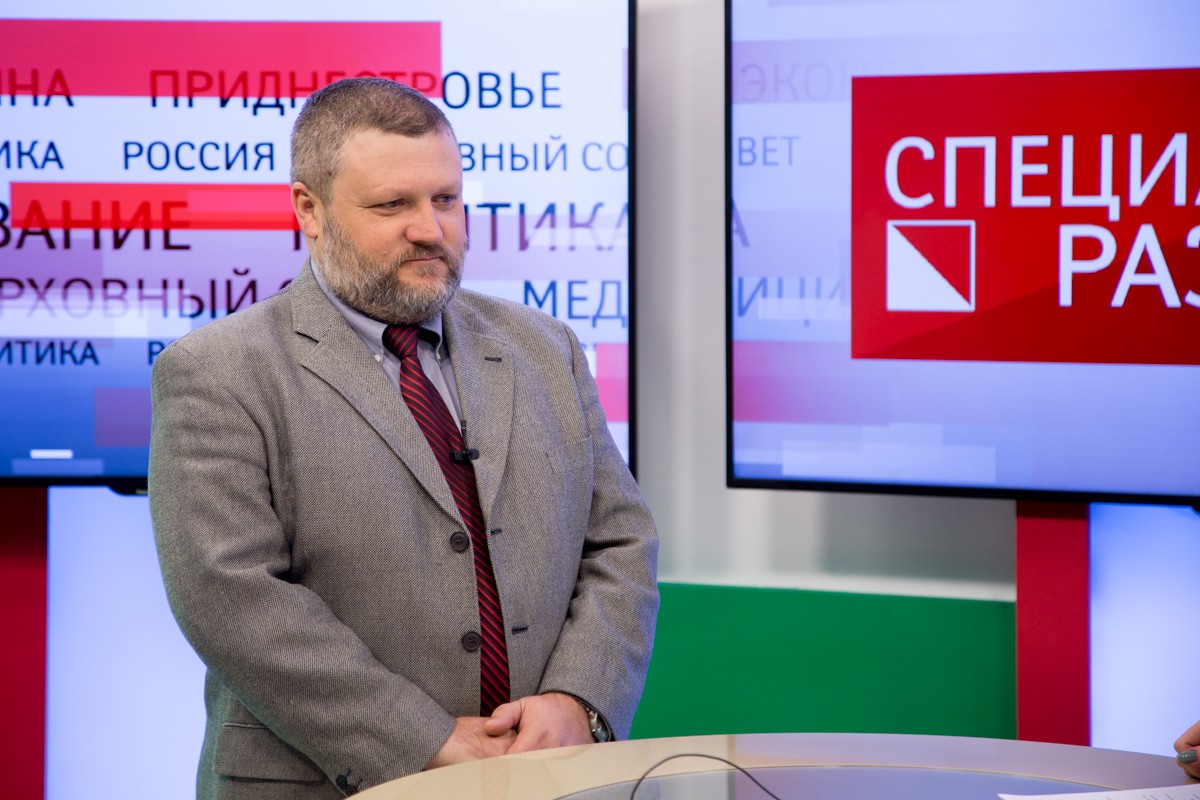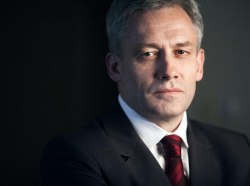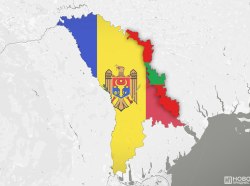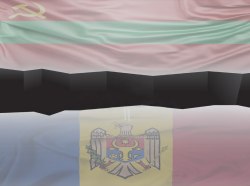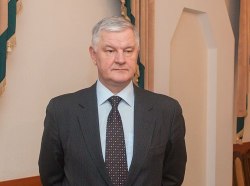Tiraspol, 18 December. /Novosti Pridnestrovya/. Another year is almost over, which means it is time to sum up the intermediate totals. Former foreign ministers of the PMR Vladimir Yastrebchak and Sergey Simonenko discussed the challenges and achievements of the political season on the First Pridnestrovian TV channel
Thus, according to Yastrebchak, Pridnestrovie and Moldova actually started the negotiation season in the absence of dialogue. It was Moldova's hostile steps aimed at stifling our country's economic potential that prevented the sides from solving acute problems, at the same time aggravating the situation. This refers to a joint Moldo-Ukrainian customs post established at the Pridnestrovian-Ukrainian border in June 2017.
"There were other moments as well which made us think well, especially in the situation where we were having serious dialogue issues with Kishinev. And our expectations connected with the Moldovan president did not justify. There were fears, but Pridnestrovie's initiative and the impetus that was given to the negotiation process in the autumn allowed us to feel easier," said Yastrebchak.
Indeed, the situation in the negotiation process had stabilised by the end of the year: Pridnestrovie and Moldova together with the mediators and observers returned to the negotiating table, resumed the important "5+2" format after a year and a half of downtime and successfully resolved some longstanding, fundamentally important humanitarian and socio-economic issues.
On 3 November, the chief negotiators of Moldova and Pridnestrovie, Gheorghe Bălan and Vitaly Ignatyev, signed a document at Kishinev's OSCE office to resume a motor traffic across the bridge connecting the villages of Bychok and Gura Bicului. The agreement to open the bridge was reached after President Krasnoselsky had sent a letter on 16 October to the participants of the "5+2" format with a request to establish cooperation in the transport and customs spheres, suggesting the resumption of a motor traffic across the bridge.
On 25 November, in Bendery, Ignatyev and Bălan signed four more agreements concerning the settlement of problems in the field of education, communication and agriculture.
"It is a great success that those issues were raised, some of them were discussed, and some of them have already been agreed to by the Moldovan side. But there is still much work to be done in this direction: in particular, the issue of our carriers participating in the international traffic hasтже been raised. A question arises in relation to other agreements as to the way they'll be implemented," noted Simonenko.
Whether the parties will be able to agree on the mechanism of implementing these agreements and how soon they will be implemented depend on the work of both Pridnestrovian and Moldovan diplomats and the experts from working groups, Yastrebchak noted.
"The four Bendery agreements are framework documents which involve mechanisms of their implementation. Be it issues related to the apostille verification of documents [or other issues], there is still much work to be done at the level of expert groups. Telephone communication is a very difficult question at least because it involves contacts not only between governmental agencies but also between cellular carriers. And here we cannot exclude various aspects related to the activities of transnational carriers working in Moldova. If we touch upon the problem of farmland use in the Dubossary District, we can't immediately return to the 2006 mechanism and certain conditions and algorithms will be needed. Much will depend on professionalism and competence, but the very fact of signing these agreements indicates the political will of the leadership of the parties to solve these issues," underscored the expert.
There is a possibility, at the same time, that the Moldovan side will ignore its commitments one more time, as was the case with earlier agreements signed by Kishinev politicians.
"Throughout the 23 years of the negotiation process, Pridnestrovie has always shown consistency in its activities, decisions and born responsibility for themб which cannot be said about Moldova. We used to face the fact that Kishinev returned to the initial positions, disrupted negotiations and froze the ongoing processes. There was a whole set of measures Moldova used to cut off Pridnestrovie from negotiations," said Simonenko.
The Pridnestrovian foreign minister, Vitaly Ignatyev, has repeatedly said this year that the discussion of many issues needs active international participation. At the same time, only one guarantor of the negotiation process — the Russian Federation — has heeded us.
The entire negotiating year has passed under the 'sign' of Russia. It is the standard of preserving peace on the banks of the Dniester and, of course, Russia has constantly advocated the continuation of the dialogue, as indicated by its presence and statements," noted Simonenko.
As for another guarantor state — Ukraine — Pridnestrovie's relations with this neighbour are chiefly humanitarian. Diplomatic contacts with Ukraine are scarce, Yastrebchak explained.
"Problems in relations with Ukraine emerged earlier than 2014 due to the inadequate actions of the then Pridnestrovian leadership, which, starting from 2012, failed to us the potential we used to have. Now official contacts are largely limited to the negotiation process. We work mainly on humanitarian, educational and cultural projects, develop academic contacts. This work should become a precedent for resuming cooperation in other areas," said Yastrebchak.
Speaking about the role of the current Austrian OSCE chairmanship in the negotiating process, the experts agreed that Vienna's position that every "5+2" meeting should culminate in the achievement of specific agreements had only exacerbated the already tense political relations between Tiraspol and Kishinev. Therefore, it was not surprising that it was Pridnestrovie that saved the Austrians from the obvious diplomatic failure by signing the above five agreements with Moldova a day before the calling of a "Permanent Conference..." meeting.
Now it is Italy, which assumes the OSCE chairmanship in 2018, that will have to make efforts to ensure that the successes of 2017 will not remain on paper but will be implemented in the specified time. However, the Prdnestrovian experts are not optimistic about it.
"Italy has many problems related to EU affairs. Among them are the migration crisis, the Middle East situation; therefore, we can't expect that the Moldo-Pridnestrovian settlement will be an absolute priority. In this case, it is necessary to look at things realistically," noted Yastrebchak.
The expert states that confrontation with the use of external factors and external pressure on Pridnestrovie has not disappeared. The conflict remains acute, and "there are enough problems which do not allow us to work fully for the benefit of the people."


